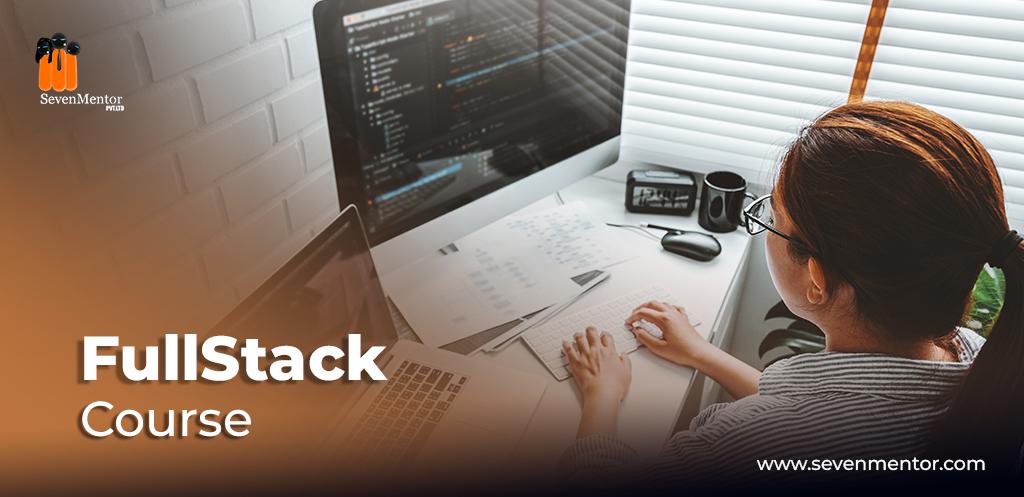A Full Stack Developer should have a well-rounded skill set that covers both front-end and back-end development, along with a solid understanding of various technologies, tools, and practices. Here are some essential areas and skills that a Full Stack Developer should be familiar with:
-
Front-End Development:
- HTML, CSS, and JavaScript: Proficiency in these core web technologies is crucial for building user interfaces and implementing interactive features.
- Frameworks and Libraries: Familiarity with popular front-end frameworks like React, Angular, or Vue.js, along with relevant libraries, allows for efficient development and code reuse.
- Responsive Design: Understanding responsive design principles and CSS frameworks like Bootstrap ensures that applications look and function well across different devices and screen sizes.
-
Back-End Development:
- Server-Side Programming Languages: Proficiency in at least one back-end language such as JavaScript (with Node.js), Python, Java, or Ruby enables the implementation of server logic and data processing.
- Databases and Query Languages: Knowledge of relational databases (e.g., MySQL, PostgreSQL) or NoSQL databases (e.g., MongoDB) and query languages (e.g., SQL) is essential for data storage and retrieval.
- Web APIs: Understanding how to design, implement, and consume web APIs enables integration with external services and data exchange.
-
Development Tools and Technologies:
- Version Control Systems: Proficiency in using Git or other version control systems allows for efficient code collaboration, tracking changes, and managing codebase history.
- IDEs and Code Editors: Familiarity with development tools like Visual Studio Code, IntelliJ IDEA, or WebStorm helps in writing, debugging, and managing code effectively.
- Package Managers: Knowledge of package managers like npm (for Node.js) or yarn simplifies dependency management and allows for easy integration of third-party libraries.
- Command Line and Terminal: Proficiency in command-line tools and terminal usage is valuable for various development tasks, server management, and deployment.
-
Web Application Architecture:
- Client-Server Architecture: Understanding how client and server components interact and exchange data is crucial for building scalable and efficient web applications.
- RESTful APIs: Knowledge of REST (Representational State Transfer) principles and best practices enables the design and development of well-structured and interoperable APIs.
- Microservices Architecture: Familiarity with the concept of microservices and related technologies facilitates the development of modular and scalable applications.
-
Testing and Debugging:
- Unit Testing: Knowledge of testing frameworks (e.g., Jest, Mocha) and practices helps ensure code quality and maintainability through automated testing.
- Debugging: Proficiency in using debugging tools and techniques helps identify and fix issues during development and deployment.
-
Deployment and Infrastructure:
- Web Servers and Hosting: Understanding how to deploy applications to web servers like Apache or Nginx and deploy to cloud platforms (e.g., AWS, Azure, Google Cloud) is essential.
- Containerization: Familiarity with containerization technologies like Docker allows for packaging applications along with their dependencies for easy deployment and scalability.
- DevOps and Continuous Integration/Deployment: Knowledge of CI/CD pipelines, automation tools (e.g., Jenkins, GitLab CI/CD), and infrastructure as code (e.g., Terraform, CloudFormation) helps streamline the development and deployment process.
-
Soft Skills and Collaboration:
- Problem Solving: The ability to analyze and solve problems efficiently is crucial for successful Full Stack development.
- Communication and Collaboration: Good communication skills, both verbal and written, facilitate effective collaboration with team members, stakeholders, and clients.
- Adaptability and Learning: Being open to new technologies and continuously learning helps Full Stack Developers stay updated and adapt to evolving industry trends.
It's important to note that this is a broad overview, and the specific skills and technologies required may vary depending on the project, industry, and individual preferences. Full Stack Developers should be adaptable and willing to learn new technologies and tools as the field of web development evolves.
Read More...
Visit: B Wing , Ground Floor Office No. 10 Shreenath Plaza Dnyaneshwar Paduka chowk, Maharashtra 411005
